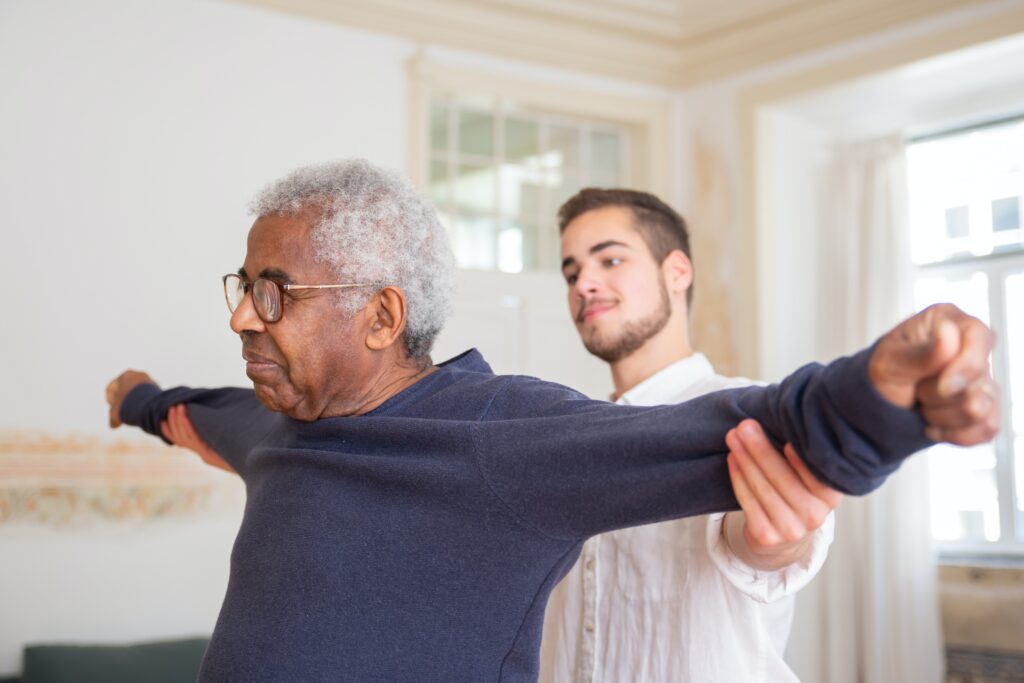
Home Health Aide
A Home Health Aide (HHA) is a dedicated and compassionate healthcare professional who plays a pivotal role in ensuring the well-being and comfort of individuals in need of assistance within the familiar and reassuring environment of their own homes.
Role and Responsibilities:
- Personal Care: HHAs are trained to assist clients with various personal hygiene tasks, including bathing, grooming, dressing, and toileting. They approach these tasks with sensitivity, respecting the client’s dignity and ensuring their comfort.
- Medication Management: Some HHAs receive specialized training to administer medications to clients, ensuring they take prescribed drugs at the right times and in the correct dosages.
- Vital Signs Monitoring: Regular monitoring and documentation of vital signs such as blood pressure, pulse rate, temperature, and respiration are crucial aspects of the HHA’s role. This helps detect any health issues early and ensures timely intervention.
- Mobility Support: HHAs provide invaluable assistance with mobility and exercises, helping clients move around safely and engage in physical activities as recommended by healthcare professionals. This is particularly important for clients with mobility challenges.
- Meal Preparation: Planning and preparing nutritious meals tailored to clients’ dietary requirements and preferences is a vital part of an HHA’s responsibilities. Proper nutrition is essential for clients’ overall health, and HHAs play a significant role in this aspect of care.
- Household Assistance: HHAs may undertake light housekeeping duties such as cleaning, laundry, and tidying up to maintain a clean and safe living environment for their clients.
- Companionship: Beyond physical care, HHAs offer companionship and emotional support, fostering a sense of connection and well-being for their clients. They engage in conversations, accompany clients on outings, and provide much-needed social interaction.
- Transportation: Some HHAs assist with transportation to medical appointments, grocery shopping, and other errands, ensuring that clients can maintain an active lifestyle and access necessary services.
- Family Education: HHAs often take the time to educate family members on how to provide care and support when the HHA is not present, ensuring continuity of care and peace of mind for both clients and their loved ones.
Importance:
Home Health Aides are integral to the healthcare system for several reasons:
- Independence: HHAs enable individuals with disabilities, chronic illnesses, or age-related limitations to maintain their independence and continue living in the comfort and familiarity of their homes, enhancing their overall quality of life.
- Reduced Hospitalization: Through regular monitoring, medication management, and early detection of health changes, HHAs help prevent complications that might otherwise lead to hospitalization, reducing healthcare costs and stress for clients and their families.
- Emotional Well-being: The companionship and emotional support provided by HHAs reduce feelings of isolation and loneliness, contributing to better mental health outcomes for clients.
- Family Support: HHAs play a crucial role in supporting family caregivers, alleviating their responsibilities and ensuring that their loved ones receive the necessary care and attention.
- Cost-Effective Care: Home healthcare services delivered by HHAs are often more cost-effective than hospital or nursing home care, making them a practical choice for many individuals and families.
Subsribe To Our Newsletter
Stay in touch with us to get latest news and special offers.
